How the Cook Islands fought off the shackles of colonialism and freed its LGBTQ+ community
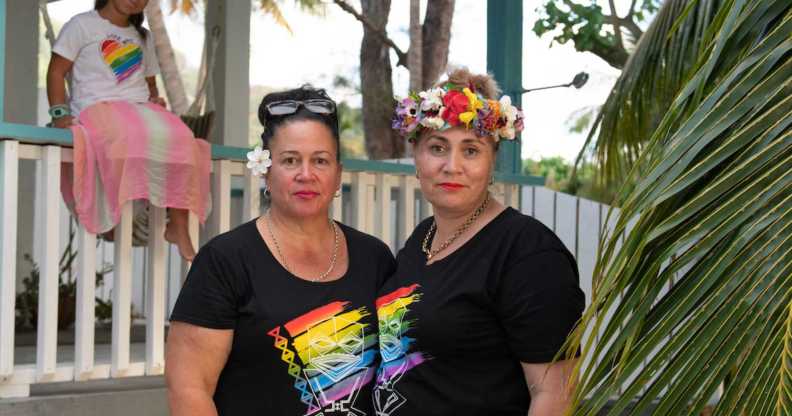
Karla Eggleton is the CEO of Destination Cook Islands. She is married to Lara Sadaraka and they are mothers to Kayla Pouana Ngaroa Ki Ivanui Pafuti Sadaraka-Eggelton. (Courtesy of Hannah Maule-ffinch)
Karla Eggleton is the CEO of Destination Cook Islands. She is married to Lara Sadaraka and they are mothers to Kayla Pouana Ngaroa Ki Ivanui Pafuti Sadaraka-Eggelton. (Courtesy of Hannah Maule-ffinch)
When Nerida Williams visited the Cook Islands late last year, she was struck by just how many Pride flags were dotted about the place.
The Cook Islands, known as a religious and somewhat conservative place, is a self-governing territory in the South Pacific Ocean that has a free association with New Zealand. It has a population of around 17,000 people, meaning it sometimes gets overlooked in discussions about global LGBTQ+ rights.
That all changed in April when the Cook Islands finally scrapped a colonial-era ban on gay sex. It was an empowering moment for the small island’s inhabitants, especially those who are LGBTQ+ and who had spent years fighting to see the law overturned.
Nerida Williams, a senior communications advisor to the International Planned Parenthood Federation, got to visit the Cook Islands just months before the law was finally changed.
She was deployed to work on another issue entirely – the intersection of climate change and sexual reproductive health and gender issues – but soon realised there was story “that hadn’t been told before”, that of a burgeoning LGBTQ+ rights movement and a community no longer willing to live under the shadow of criminality.
“It’s such a small island and there’s one road that goes around in a circle – it’s really cute – and I noticed that there were loads of Pride flags. Every fifth business or something had a Pride flag, and so first as a queer person myself I was like, wow this is really cool, but secondly, why are there so many?” she tells PinkNews.
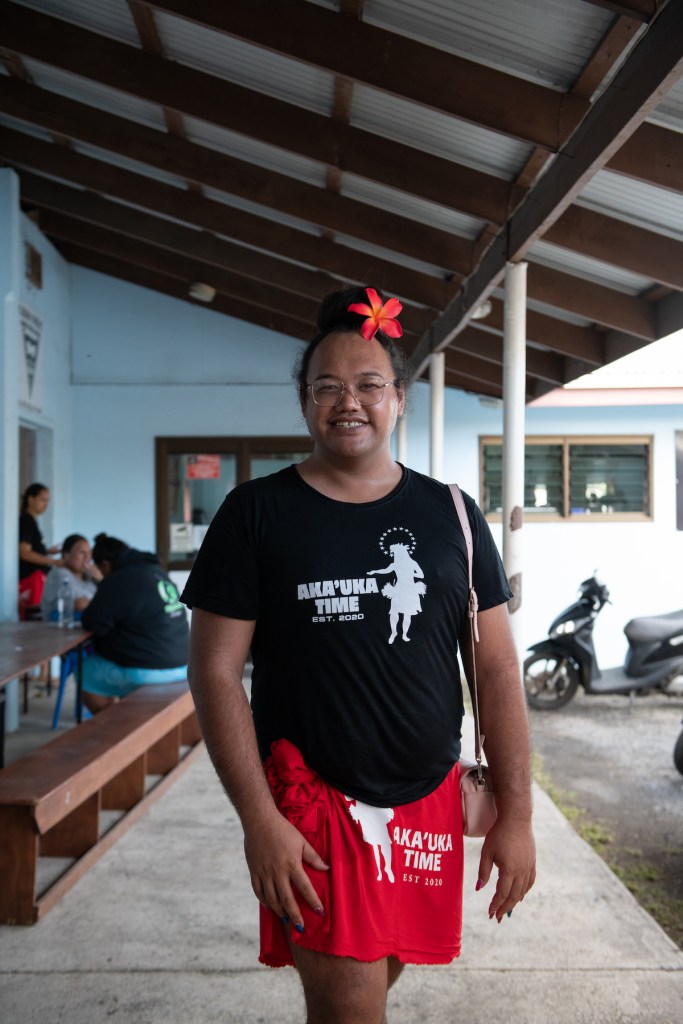
From there, Nerida got talking to Dean Tangata, a local involved with the Cook Islands Family Welfare Association (CIFWA) and Pride Cook Islands. He told her about the groundswell of support in the region to get rid of an anti-gay law that, while never enforced, was creating a culture of fear for the island’s queer residents.
“They’d been trying for so long to overturn this and there’d been so many stumbling blocks along the way,” Nerida says.
Nerida decided to find all of the LGBTQ+ advocates on the island and interview them. She and award-winning photographer Hannah Maule-ffinch drove around the island collecting personal testimony and powerful portraits to create a snapshot in time of a region on the brink of change.
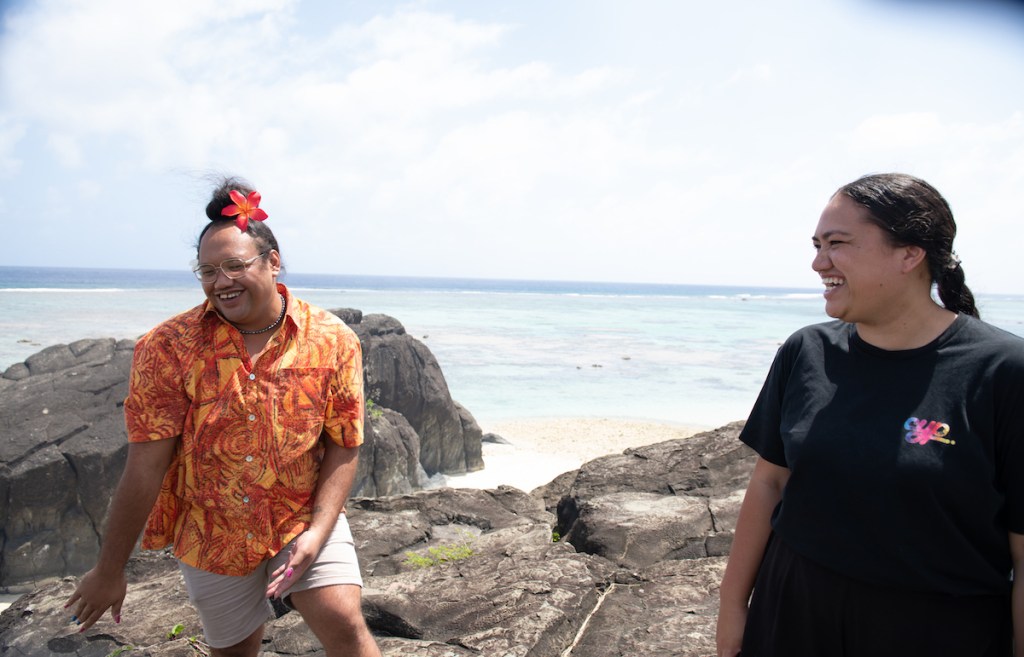
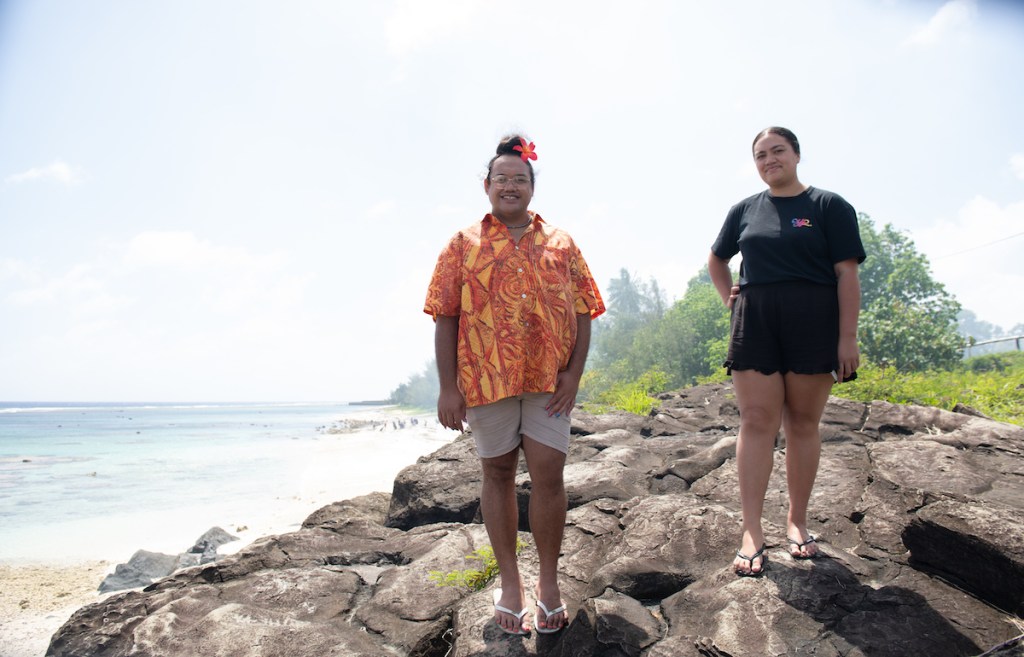
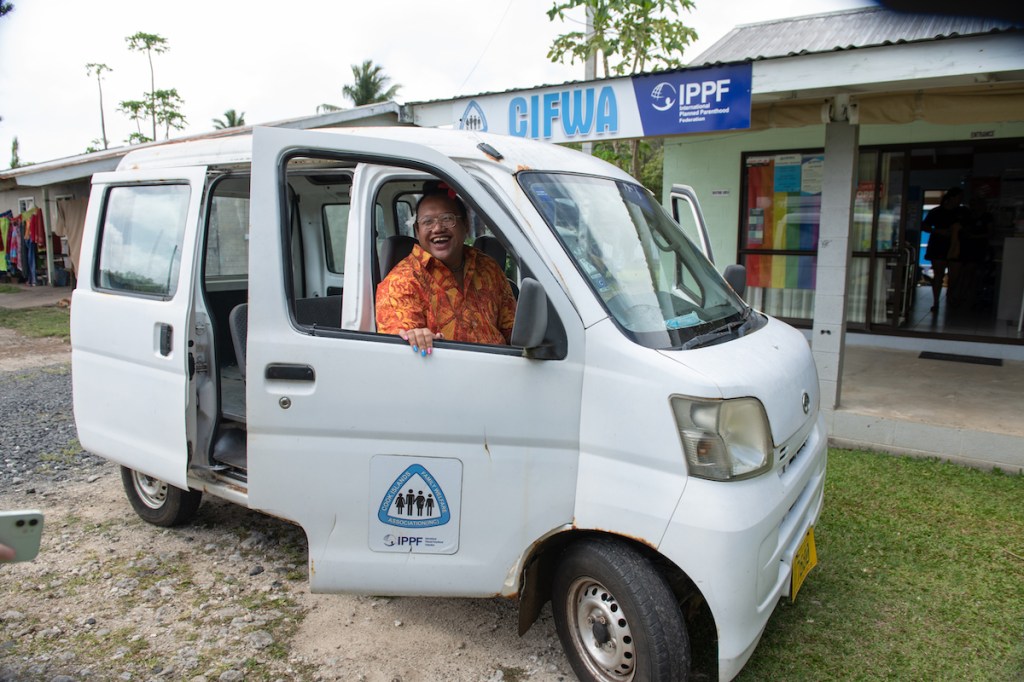
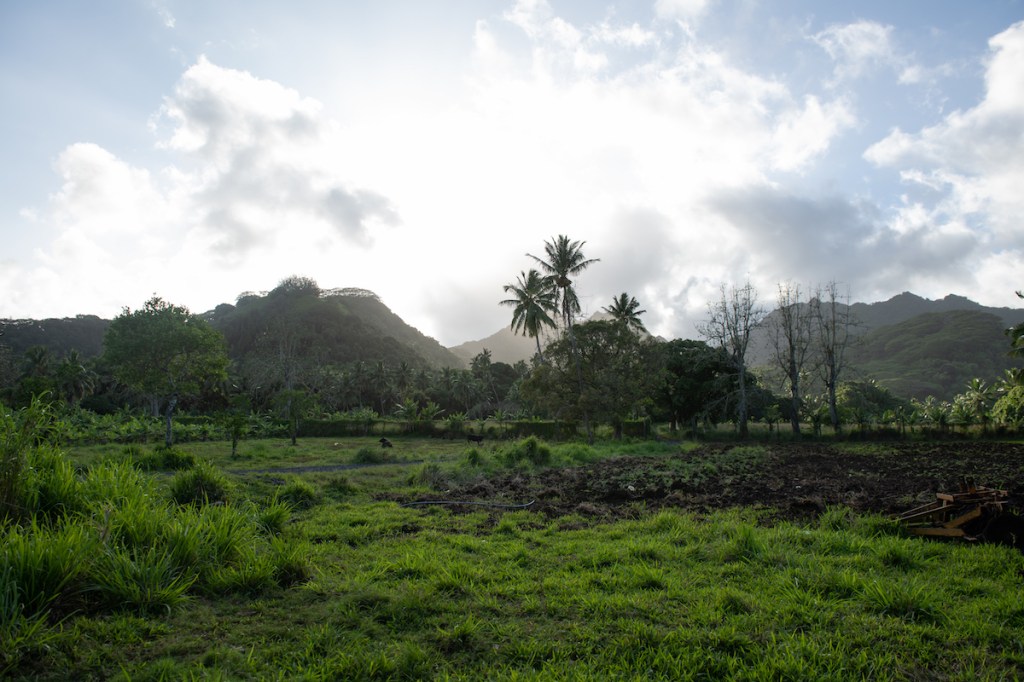
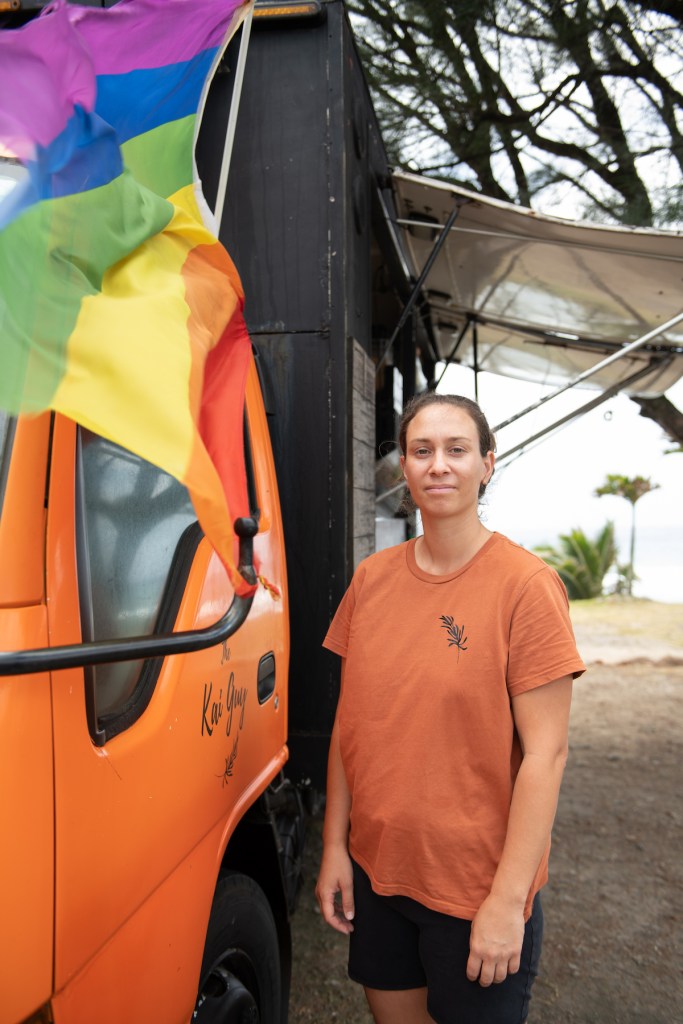
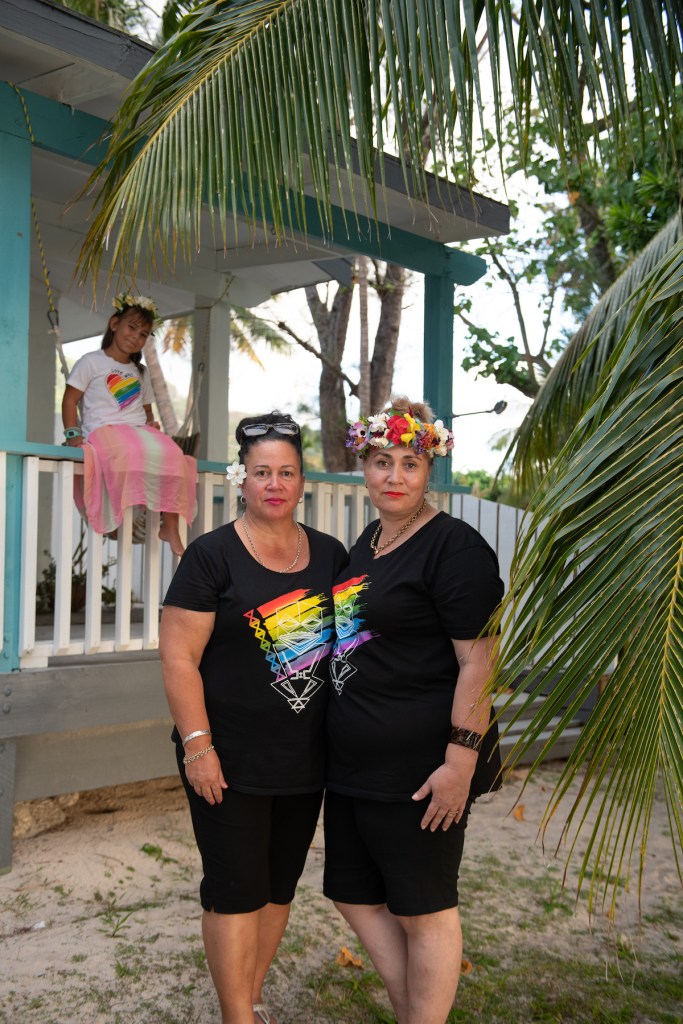
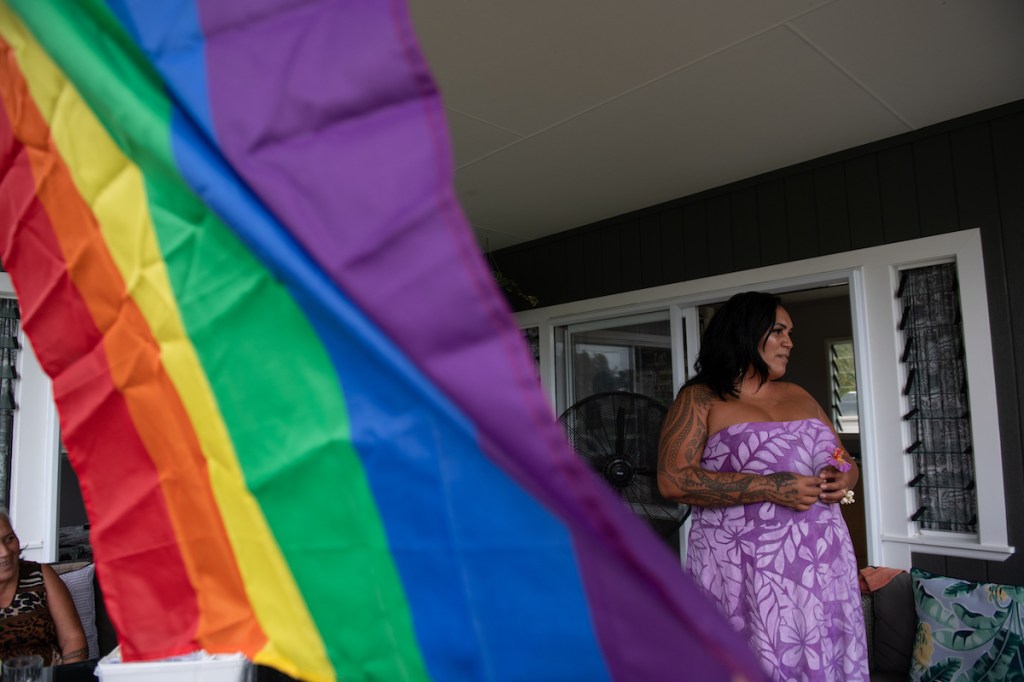
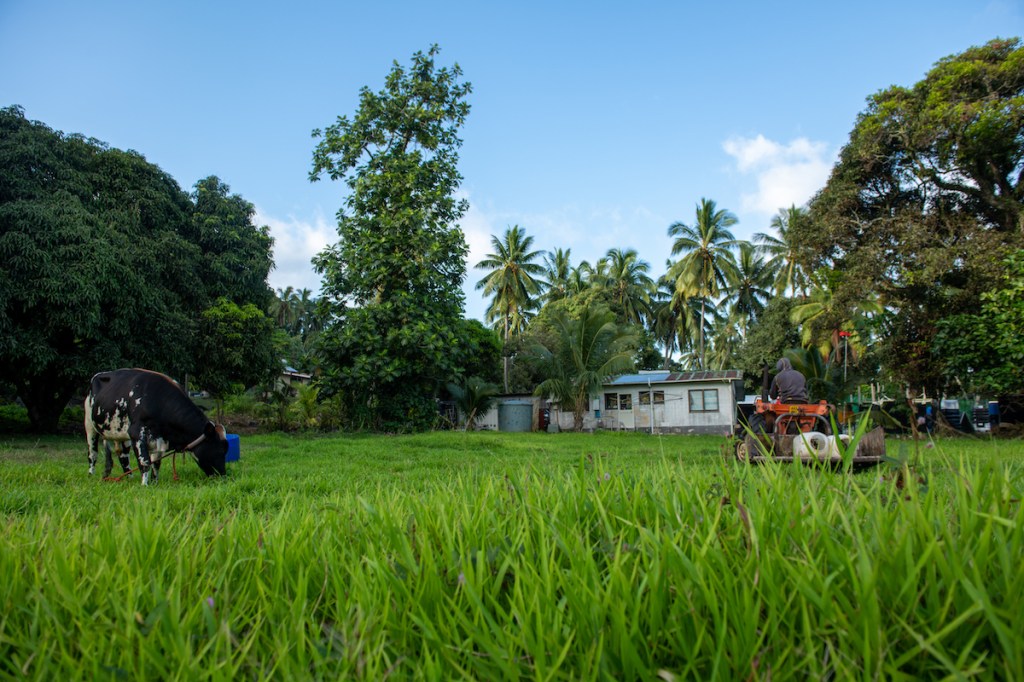
What she discovered was that the traditional view of LGBTQ+ people was finally starting to break through the fog of colonialism.
“Cook Islanders can be very religious, very Christian – the missionaries did a very good job on the Cook Islands. They were colonised by the British and then they were a New Zealand protectorate and they finally gained independence in 1965 so they’ve had all these influences on them which don’t marry with how the rainbow community were treated traditionally,” Nerida says.
Cook Islands’ queer residents have fought tirelessly for change
Karla Eggleton and Lara Sadaraka, a local same-sex couple, know from personal experience just how hard-won the battle to change minds – and the law – was. Both in their fifties, Karla and Lara have watched throughout their lives as the island has changed around them.
“I was raised in a very staunch religious home where both my parents held high positions within the church,” Lara tells PinkNews. “When I was in my early twenties I went through a significant period of self-discovery and personal growth, which coincided with the passing of my father. This was a time when I began navigating through my sexuality and coming to terms with my authentic self.”

She first came out to her twin sister and some of her close friends before she eventually worked up the courage to come out to her mother. In the end, she didn’t have much choice – she had met and fallen in love with Karla, and they knew they wanted to spend their lives together.
“My mother was an incredible woman and loved Karla like she was her own daughter. She passed in March 2019 and I will always remember her acceptance of us especially given our relationship conflicted with her spiritual convictions.”
While Karla and Lara have never experienced overt discrimination on the island themselves, they know not everyone has been so lucky – although they are adamant that society is changing.
“We are aware that certain members of the community, especially the akava’ine’s [a local word for trans women], have unfortunately faced discrimination and abuse and we recognise the challenges and injustices they have encountered. Part of the advocacy work Karla and I do is a way for us to give back and contribute to creating a more inclusive and accepting society for everyone.”
The law change, when it finally came through in April, was “monumental” for Karla and Lara. There were times they lost hope completely that it would ever come to pass.
“The number of times the bill was deferred led me to believe it was going in the ‘too-hard’ basket,” Lara says. “With the Cook Islands being a Christian nation most cannot separate church and state so when government pushed the law change through on 14 April, 2023 my emotions were a mix of disbelief and overwhelming gratitude.
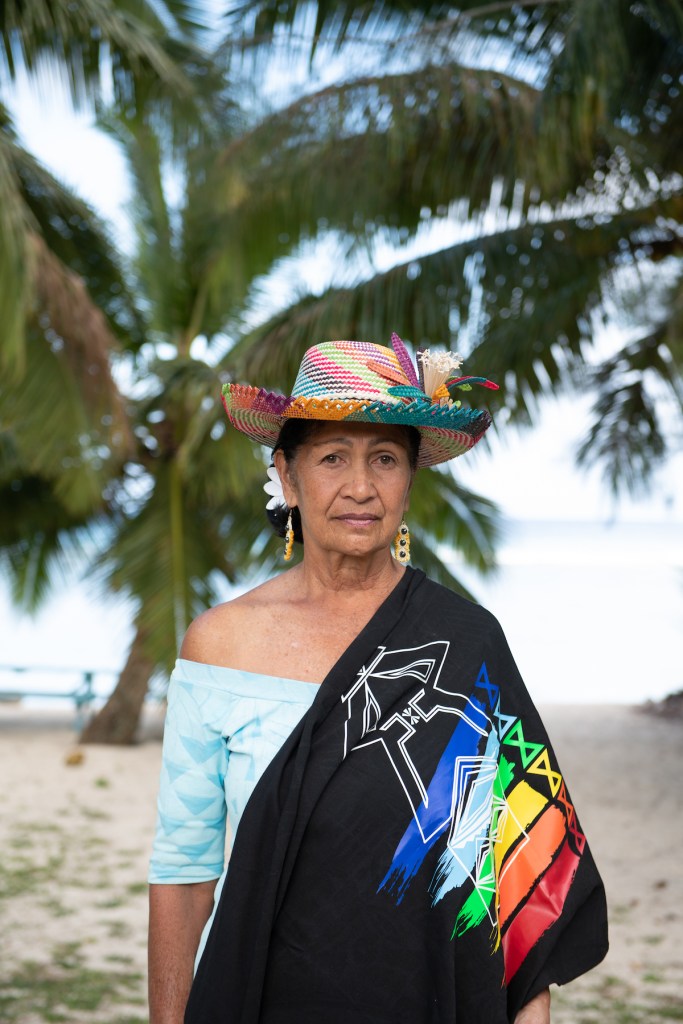
“I couldn’t believe that we had finally reached this milestone as a nation and I felt an immense sense of gratitude for all the advocates and people who fought tirelessly for this long awaited recognition of equal rights and acceptance.”
Now that change has finally become a reality, Nerida thinks there’s a lot to be gleaned from the fight for equality in the Cook Islands. She says the battle is “a great example of what can be achieved when we do speak out”.
“This was a grassroots effort from different segments of the rainbow community, so it wasn’t just gay men, it wasn’t just lesbian women, it wasn’t just transgender people. It was everyone coming together for a shared goal, because it was really important to them to overturn this anti-homosexual bill.”

